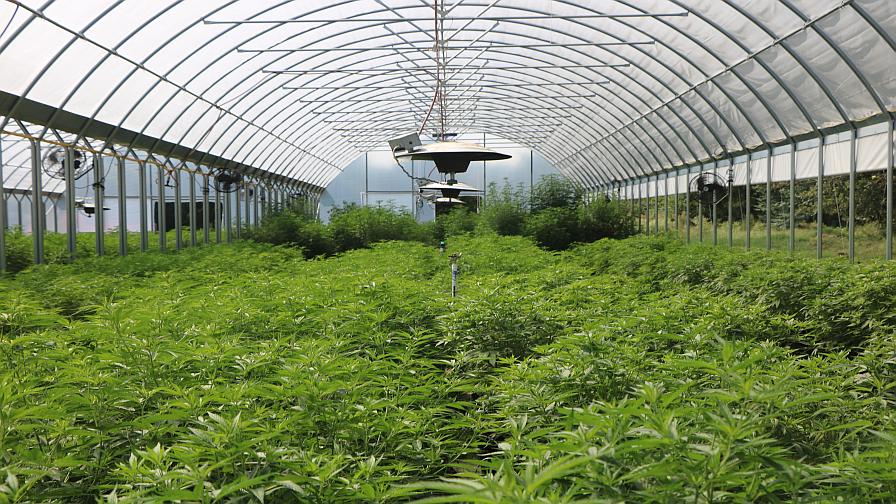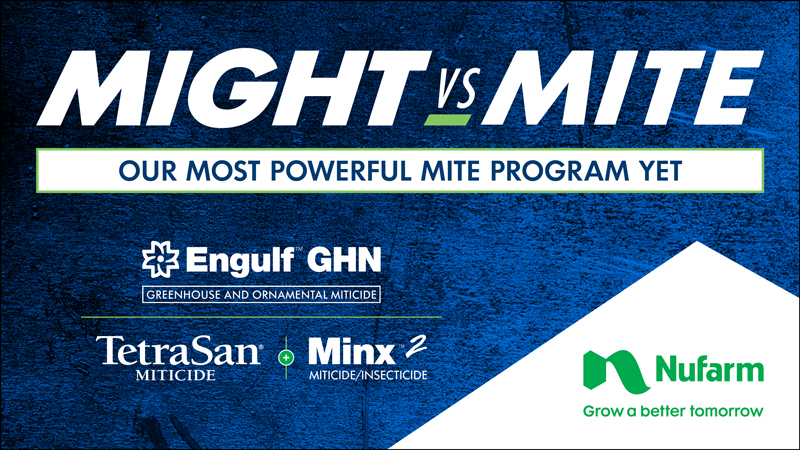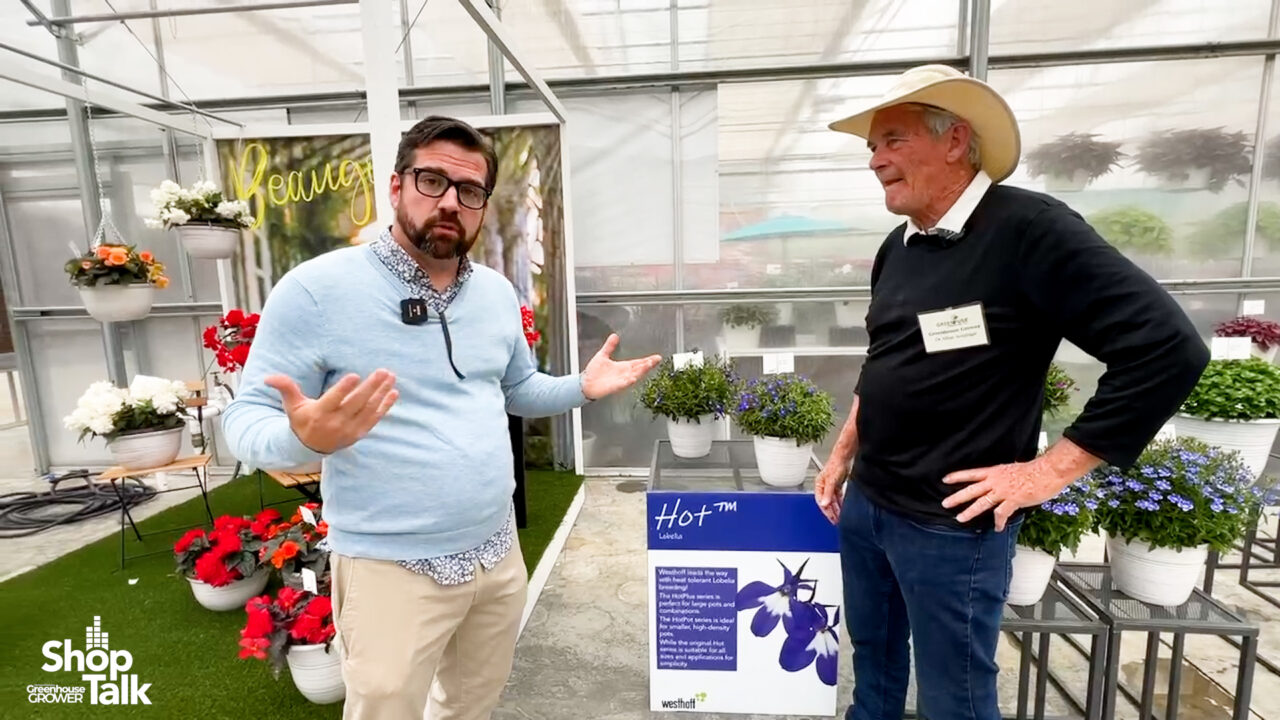Dümmen Orange Uses Bioassay Assessments to Improve Begonia Stock
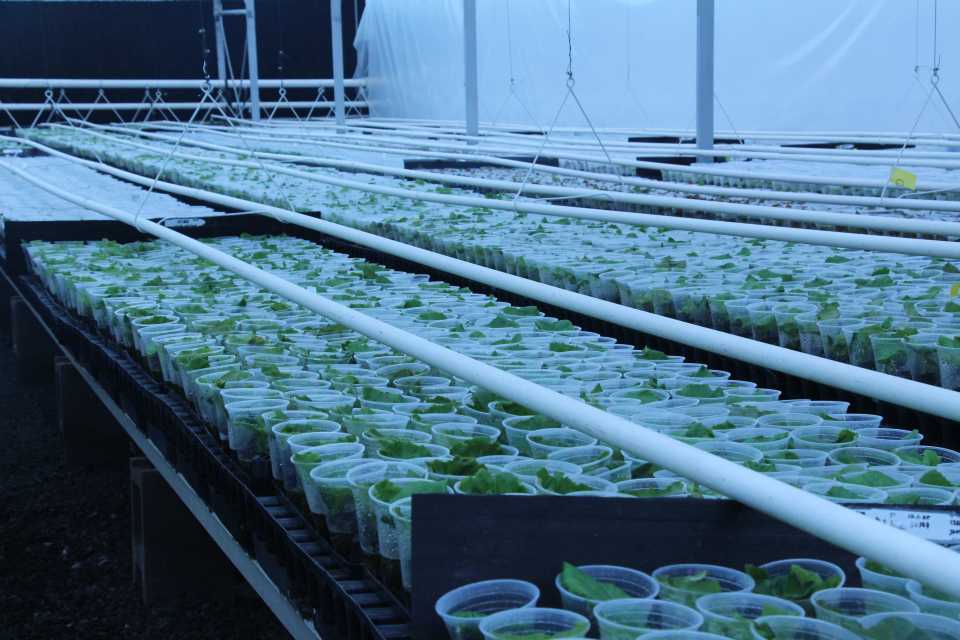
Dümmen Orange has invested in a number of infrastructure and phytosanitary improvements to eradicate disease.
After experiencing issues with Xanthamonas in 2017 that affected the begonia supply in the North American market, Dümmen Orange has deeply invested in new disease-reducing production methods. Recent efforts have focused on defining and implementing improvements to ensure a reliable, quality supply of begonia cuttings for the spring of 2019.
In late September, Dümmen Orange invited a group of industry members to visit its Las Mercedes production farm in El Salvador to observe the company’s recent begonia production stock improvements. Hosted by the Dümmen Orange Greencare team, the group included root-and-sell operations, brokers, finished growers, and Greenhouse Grower Editor Laura Drotleff.
The Dümmen Orange Greencare team highlighted the use of a bioassay assessment for screening each cutting used for elite or mother stock build up. This method has not been used much, if at all, in ornamentals production and supports a commitment by Dümmen Orange to produce clean stock from the very start. The process requires the 1.2 million cuttings to be assayed for an eight-week period prior to introduction into the stock facility. In addition to the stock screening, a second round of bioassay is underway that will index all begonia elite stock for 2020 and beyond. The bioassay assessment protocol is the new standard for Dümmen Orange begonia stock plant production at its Las Mercedes farm.
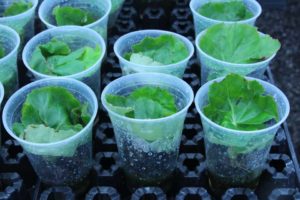
Bioassay assessment for 1.2 million cuttings to build clean stock for begonia production is a novel method in ornamentals production that has been a significant investment for Dümmen Orange in its efforts to eliminate Xanthomonas disease issues.
Going forward, Dümmen Orange says it plans to communicate its findings on using this production method with other begonia producers in an effort to reduce the possibility of disease, and improve growers’ access to clean stock throughout the industry. Further bioassay assessment may be used to index additional crops.
Dümmen Orange also implemented new measures to enhance its begonia program through improvements to infrastructure, sanitation protocol, and communication.
All begonia growing areas have been thoroughly sanitized and all growing media replaced. Gutters have been reinforced and plastic partitions have been installed between rows.
Stock areas have been separated into smaller phytosanitary units, with two-step tool sterilization and more frequent, randomized scouting measures in place.
A contingency plan defines additional production safety buffers and a communication strategy to share updates with the market quickly via Dümmen Orange Technical Specialist Diana Shull.
Visitors to the Las Mercedes farm evaluated the mother stock plants that will serve as the supply for both Elatior and I’Conia begonia orders for spring 2019. Unrooted cutting shipments of Dümmen Orange begonia began in week 40 for the U.S. and Canadian markets.
Look for a more comprehensive look inside the Dümmen Orange Las Mercedes farm, its bioassay assessment on begonia stock, its infrastructure and phytosanitary improvements, and more, coming soon on GreenhouseGrower.com.






